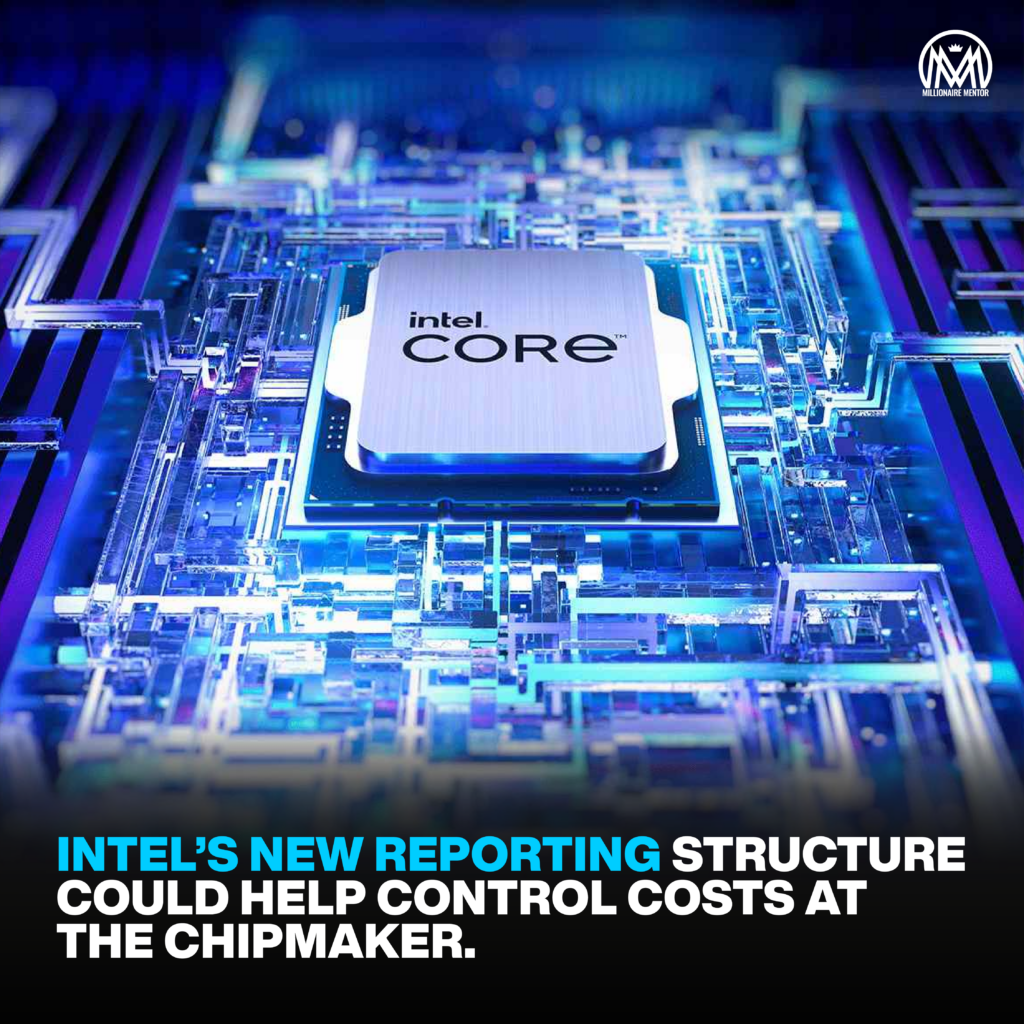The world of technology and semiconductor manufacturing is always in a state of flux, with companies constantly adapting and refining their strategies to stay ahead. Recently, Intel Corporation, one of the leading players in the industry, made headlines as Intel stock drops of 6%. This decline was a direct response to the company’s update on its chip manufacturing plans, which left investors and analysts contemplating the future of Intel and its competitive position. In this article, we delve into the details of Intel’s chip manufacturing update and its implications for the company.
Intel Stock drops 6% Amid Chip Manufacturing Update.
Intel has long been recognized for its prowess in chip manufacturing, with its cutting-edge processors powering a wide range of devices. However, the company has faced challenges in recent years as it struggled to keep up with the ever-evolving demands of the industry. In a bid to regain its competitive edge, Intel announced a strategic shift in its chip manufacturing plans.
The company revealed that it would be delaying the launch of its next-generation 7-nanometer chips by approximately six months. This update was significant, as it indicated a setback in Intel’s roadmap and raised concerns about its ability to keep pace with competitors, such as Advanced Micro Devices (AMD) and Taiwan Semiconductor Manufacturing Company (TSMC).
Market Reaction and Investor Sentiment.
The announcement regarding the delay in chip manufacturing plans had an immediate impact on Intel’s stock price. Shares plummeted by 6%, reflecting investor concerns and a loss of confidence in the company’s ability to execute its strategies effectively. The drop in stock value underscored the importance of chip manufacturing in the technology industry and highlighted the sensitivity of investors to any perceived weaknesses or setbacks.
Industry Competition and Shifting Dynamics.
Intel’s chip manufacturing update shed light on the intensified competition within the semiconductor industry. Rivals like AMD and TSMC have made significant strides in advancing their own chip manufacturing capabilities, fueling speculation about potential shifts in market dynamics. The delay in Intel’s 7-nanometer chips provided an opportunity for competitors to gain a competitive advantage and capture market share.
However, it is important to note that Intel remains a formidable player in the industry, with an extensive portfolio and established relationships with key partners and customers. The company’s commitment to innovation and its ability to adapt its strategies will be crucial in regaining its footing and maintaining its market position.
Future Outlook and Strategic Adjustments.
Intel’s chip manufacturing plans are an integral part of its long-term growth strategy. The setback in the launch of its 7-nanometer chips underscores the challenges and complexities of semiconductor manufacturing. To address these challenges, Intel has expressed its commitment to making the necessary adjustments and investments to enhance its chip manufacturing capabilities and regain its competitive edge.
The company is focusing on advancing its technology and exploring new avenues, such as outsourcing some manufacturing to third-party foundries. Additionally, Intel is ramping up its efforts in other areas, including artificial intelligence, data centers, and autonomous vehicles, to diversify its revenue streams and reduce its reliance on traditional chip manufacturing.
Intel’s recent update on its chip manufacturing plans caused a significant drop in its stock price, signaling investor concerns about the company’s competitive position. The delay in the launch of its 7-nanometer chips highlighted the fierce competition within the semiconductor industry and the importance of timely innovation. However, it is crucial to remember that Intel remains a formidable player in the market, with a solid foundation and a history of technological breakthroughs.
The challenges faced by Intel present an opportunity for the company to adapt and evolve, leveraging its strengths to navigate the changing dynamics of the industry. As the semiconductor landscape continues to evolve, Intel’s ability to execute its revised chip manufacturing strategies and deliver on its long-term vision will be pivotal in determining its success in the years to come.


Trending News Articles
 China to launch $40 billion state fund to boost chip industry.by Jason Stone●September 6, 2023
China to launch $40 billion state fund to boost chip industry.by Jason Stone●September 6, 2023 The Story Of How MrBeast Became Successful on YouTubeby Jason Stone●March 23, 2022
The Story Of How MrBeast Became Successful on YouTubeby Jason Stone●March 23, 2022 Say Salut to Essentials themeby Luis Escobar●February 15, 2020
Say Salut to Essentials themeby Luis Escobar●February 15, 2020 28% of Fortune 100 CEOs list finance as their primary area of expertiseby Jason Stone●January 23, 2023
28% of Fortune 100 CEOs list finance as their primary area of expertiseby Jason Stone●January 23, 2023





